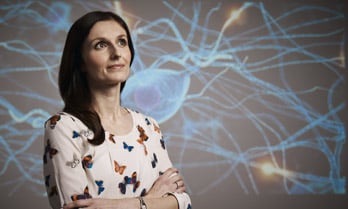







22 January 2025
The genetics behind mental health and how we treat depression
While an interest in science has always been personal for Brittany, making a career of it hasn't been as clear cut. After finishing her Masters in her native South Africa, it was during a 'gap year' of sorts, working on a tour boat in the idyllic surrounds of Koh Pi Pi in Thailand, that Brittany almost have up on that path altogether.
But they proved defining moments in her life - reaffirming her determination to make a difference.
Brittany then moved to Australia to tackle Alzheimer's, an all too familiar disease for her and her family, after the diagnoses of her grandmother. However, when that research stream was unavailable, Brittany changed course - this time finding her true calling.
Brittany’s own mental health battle is not something she readily publicises. It’s raw. But it’s also the inspiration behind her research into the genetics of depression and other mental health issues.
First diagnosed at 16, it took Brittany several years to find a treatment that was right for her.
Now, her research at the Berghofer Medical Research Institute in Queensland is targeted at understanding the genes influencing depression risk and treatment response, leading to more effective treatment in the future.
With this research, Brittany aims to create individualised genetic risk scores – capturing a person’s individual likelihood of developing depression and even predicting which antidepressants are most likely to work for them.
“It is personal for me. I use my past as motivation to make a difference. One in three people with depression don’t respond to current treatments. Understanding the genes influencing depression risk or treatment response could lead to more effective treatments and personalised medications, ensuring people get the right treatment at the right time,” Dr Mitchell says.